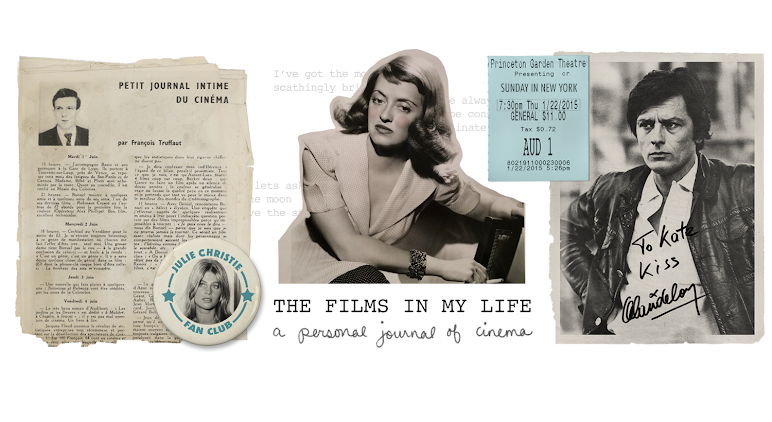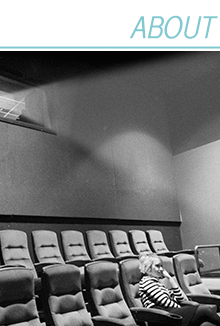
For the Summer Movie Blogathon, I decided to pay tribute to my favorite summer flick, La Piscine (1969) starring Alain Delon, Romy Schneider, Maurice Ronet, and Jane Birkin.
Lots of movies take place in the warmest season of the year, but few of them manage to capture the sizzle, the heart-palpitating heat, the gentle buzz of insects, the rapture of flesh slowly baking in the sun. When you watch La Piscine, you can feel that late 60's French summer radiating through the screen; it roasts your skin and leaves you aching to dive into the pool with Romy and Alain. I suffer a form of cinematic heat stroke each time I watch it. It paralyzes me completely.

Romy and Alain play a seemingly content couple, Jean-Paul and Marianne, vacationing at their friends' villa for the summer. Spending their days swimming in the pool, laying next to the pool, kissing beside the pool, and kissing in the pool (see above) they're the picture of luxurious sun-kissed bliss. As Millie said when I forced her to watch it, "Romy just changed from her swimsuit into ANOTHER swimsuit. I love this movie."
But all of that changes when Jean-Paul's old friend Harry (who is possibly Marianne's ex-lover... hmm...) played by Maurice Ronet, turns up unexpectedly with his barely-legal daughter Pénélope, a young Jane Birkin in one of her first roles. And that's when the summer sizzle turns into a full-blown fire. Raging jealousies and coy flirtations give way to an unexpected plot twist that turns this slow steamy flick into a fiery suspenseful thriller!
I've seen a lot of complaints that this movie is too slowly paced, or too (God I don't even want to type this word) boring, but it is so incredibly full of innuendo, side-eyes, subtle glances, scorching resentments, and dangerous mind games. Harry constantly makes little digs at Jean-Paul, while Marianne decides to fuel the gossip mill and play the coquette with her rumored ex-lover. Meanwhile Pénélope meanders aimlessly around the villa, alternately lounging in the sun to escape an oppressive case of teenage boredom, and indulging the advances of a romantically frustrated Jean-Paul.

La Piscine has the honorable distinction of being the second most-watched movie I've logged since I started keeping track of my movie-watching habits on Letterboxd in 2015. I've seen it seven times in the last 1.5 years (at one point last year I was watching it once a month!) and I still feel like each time I watch it I pick up on another passive-aggressive remark or a sly exchange. I've seen it so often now that sometimes I watch it without the subtitles and just pay attention to their expressions, how the actors react to each other and how the camera often slides slowly from one person to the other as if to say "et, tu?" after a particularly blistering burn.
Sometimes I revisit La Piscine for the summerness itself -- when our heater broke in mid-February 2016, it was a welcome respite from the frosty air. I swear I felt palpably warmer, as if the rays of the sun had reached into my arctic abode and physically enveloped my body in La Piscine's warmth.
But usually I return more for the torrid romance, the sweltering glances, the pressure-cooker of envy and blazing emotions, the fevered innuendo. While the scorching summer sun is essentially a co-star in the film, it's the plot and the characters (and let's be honest, Alain Delon shirtless. I had to say it.) that make this movie so burning hot.

La Piscine used to be streaming on Amazon but it doesn't appear to be available anymore. The only Region-1 DVD that I managed to find with English subs came as part of an Alain Delon boxset, available here. If you're a Delon fan I highly recommend it. I especially love The Widow Couderc, which teams him with Simone Signoret. The film is also currently on youtube, albeit without subtitles.
UPDATE: Criterion has announced a 4k restoration of La Piscine, coming to DVD and Blu in July 2021. It comes with brand new English subtitle translations, an alternate ending, a documentary, and more. When I tell you that I have never ordered anything quicker in my life, I am not exaggerating.
And if you want to experience La Piscine in person (unfortunately minus Alain and Romy) the villa where the movie was filmed is now a hotel/restaurant, so you can actually swim in LA PISCINE! Between that and Frank Sinatra's Palm Springs estate, I have a lot of bucket-list saving to do!
And if you want to experience La Piscine in person (unfortunately minus Alain and Romy) the villa where the movie was filmed is now a hotel/restaurant, so you can actually swim in LA PISCINE! Between that and Frank Sinatra's Palm Springs estate, I have a lot of bucket-list saving to do!





















